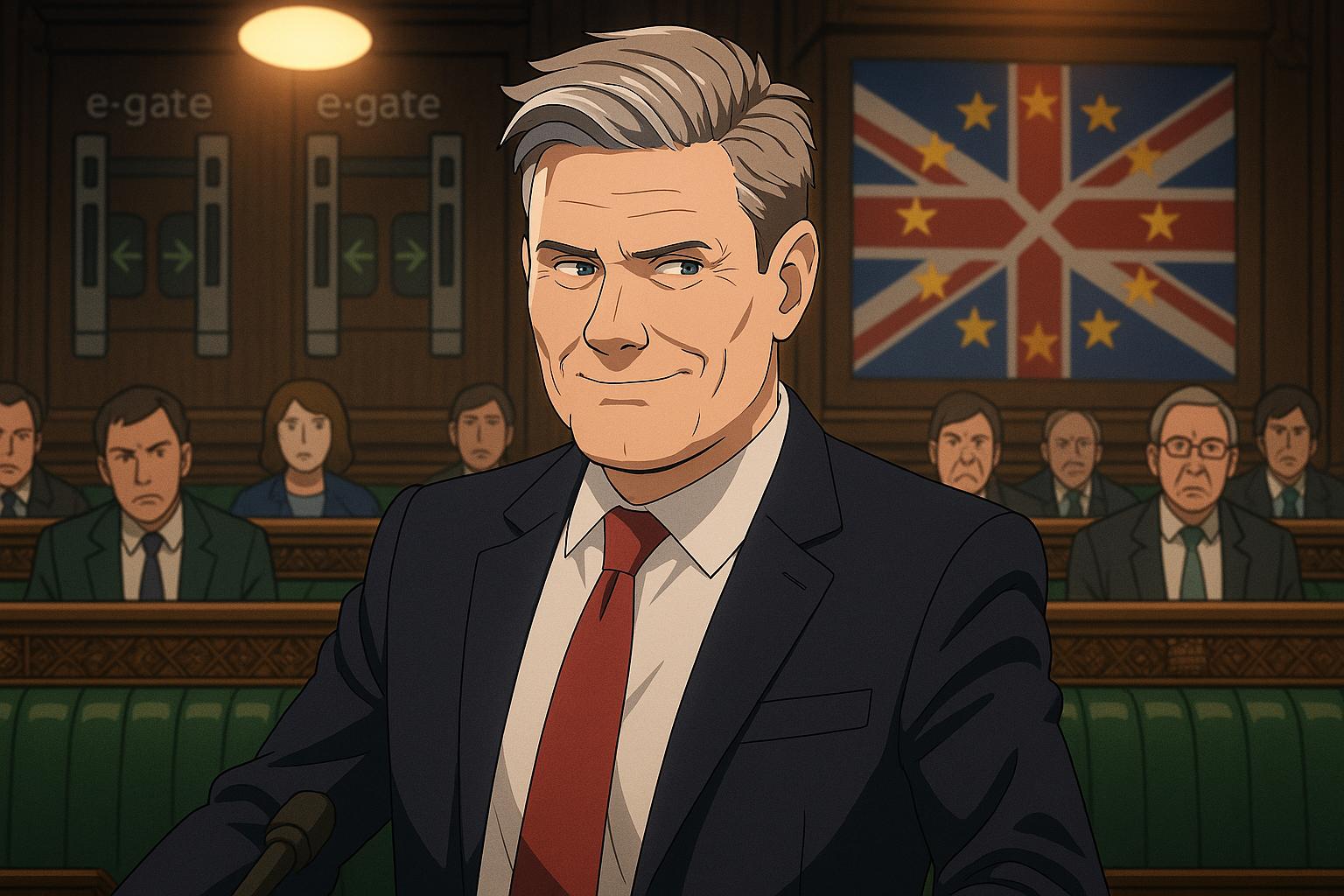During Prime Minister’s Questions on 21 May, Sir Keir Starmer expertly used wit to take aim at Nigel Farage, the leader of Reform UK. While Farage was enjoying a holiday in France, Sir Keir quipped that he was “first through the e-gates,” a reference that elicited laughter and cheers from the House of Commons. The joke underscored Farage’s absence from a crucial parliamentary debate centered on a new UK-EU deal that includes the provision for e-gates, a topic of significant political discussion.
Starmer’s jest not only highlighted Farage’s retreat from active parliamentary debate but also raised questions about accountability among political leaders. The remark reflected a wider sentiment in the Commons, where MPs have been increasingly vocal about the challenges and opportunities posed by the UK's evolving relationship with the European Union. The agreement discussed in Parliament is perceived by some as a pivotal moment in the Brexit saga, aiming to reset the fraught dynamics between the UK and EU.
Farage has been vocally critical of the direction that the Conservative government appears to be taking, warning that the UK may be heading towards what he terms ‘Brexit in name only’. He criticises recent negotiations with the EU, particularly regarding closer ties and industrial collaboration, which he believes could limit the UK’s flexibility in forming trade agreements with other nations, such as the United States. “We should be friendly but not tied,” he asserted, emphasising the necessity for the UK to retain its independence in trade matters.
This tension highlights a broader dilemma within British politics as both major parties navigate the fallout from Brexit. Farage's claims echo sentiments shared by some Conservative Party members who feel that the current government has not significantly diverged from EU regulations, allowing a potential Labour government, presided over by Starmer, to adopt similar EU frameworks without fully extricating the UK from EU influence. According to some critics, this scenario raises alarms that the identity and intent of Brexit could be compromised.
In response to Farage’s accusations that Brexit has failed, Downing Street has upheld that Brexit has brought tangible benefits, such as what they describe as a fairer system for British farmers and the advancement of legislation allowing for innovative farming technologies. This governmental standpoint contradicts Farage’s narrative and reflects the ongoing divisiveness surrounding Brexit’s perceived success or failure.
Post-Brexit, the UK is grappling with economic challenges that have been exacerbated by the pandemic and global disruptions. An opinion piece in The Guardian posits that, despite Farage’s recent admission of Brexit's failures, Starmer has remained reticent to directly engage with such criticisms. The implications of this avoidance could be significant for Labour’s electoral strategies and public perception, especially as debates surrounding Brexit continue to shape political discourse.
The interplay between these political figures underscores an increasingly complex landscape where humour and serious criticism intermingle, as both Labour and Reform UK seek to define their positions amid the shifting sands of Brexit policies and public sentiment. As Sir Keir's quip demonstrated, the theatre of politics remains a stage for both levity and tension, highlighting the crucial nature of political engagement in a climate that continues to evolve.
Source: Noah Wire Services
